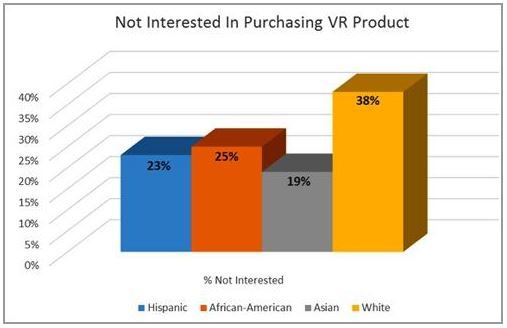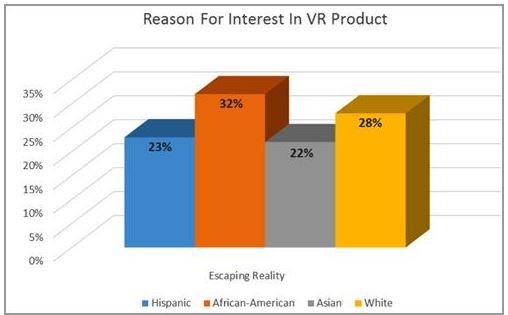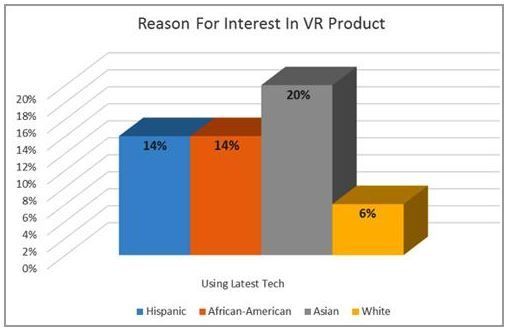Will Multicultural Consumers Help Take Virtual Reality Mainstream This Year?
The Future of Virtual Multicultural Reality
Virtual Reality has been feeling like it is on the cusp of being main stream for several years now. The purchase of Oculus Rift by Facebook for 2 billion dollars jutted virtual reality into the public consciousness. Flash forward two years and the launch of the Samsung Galaxy S7 brought free virtual reality headsets to those that pre-ordered the phone and now the HTC Vive has launched, making virtual reality a purchase within reach.
But is the interest in virtual reality relegated to gen-pop Techies? ThinkNow Research wanted to know how multicultural consumers feel about virtual reality and what they find interesting about it use.
We looked at a nationally representative readable base size of Hispanics, African-Americans, Asian, and Whites in our March omnibus survey. Overall, 49% percent of consumers were either very interested or somewhat interested in buying a virtual reality product. That is promising for the adoption of virtual reality as a whole.
Delving deeper into interest levels among the cohorts, Hispanics and Asian are particularly interested in purchasing a virtual reality product:
Conversely, Whites are the most likely to be not interested in purchasing a virtual reality product:
This highlights a unique opportunity for companies looking to make virtual reality, a reality, by looking at multicultural consumers. Interestingly, companies like Samsung and HTC are well poised to capture the multicultural virtual reality market as they already have strong brand loyalty among Hispanics and African-Americans.
Looking at respondents that were interested in virtual reality products, several data points jumped out that may steer virtual reality manufacturers in the right direction. For example, African-Americans that are interested in purchasing a virtual reality product find the lure of escaping reality significantly more interesting than other cohorts:
Additionally, it looks like FOMO is more of a driver of interest for multicultural consumers across the board than Whites as Hispanics, African-Americans, and Asians are much more likely to report “using the latest technology” as a key driver of interest in virtual reality products:
Our data clearly points to multicultural consumers as a key driver in the widespread adoption of virtual reality products. Samsung and HTC have a head start with this consumer as their brand loyalty is already high among key multicultural demographics. Brands like Oculus Rift will have a heavier lift as their product is currently significantly more expensive and rely on external hardware to function but as virtual reality hardware becomes more affordable, marketing to the multicultural consumer can be the difference between making virtual reality the next 3D TV or the next smartphone.
Download Our Detailed Report here:



